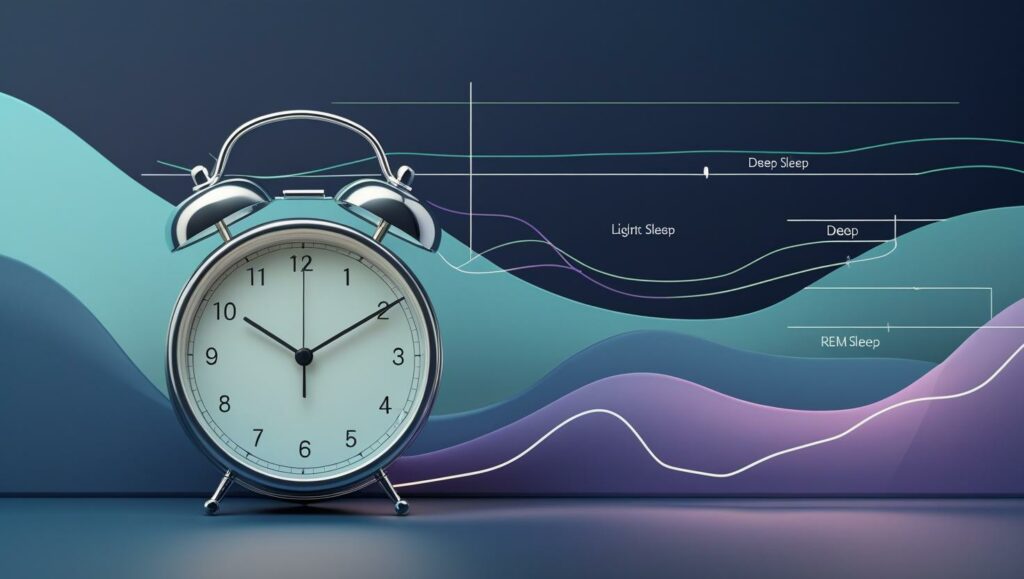Challenging the Typical Sleep Paradigm
Most people assume that eight hours of sleep is essential. But there is growing curiosity around extreme sleep schedules — sleeping only four or five hours each night. Is it truly possible to function optimally? Or is this a path to exhaustion and burnout?
Understanding how sleep cycles work and how the body adjusts is key to rethinking conventional wisdom.
Understanding Sleep Architecture
Sleep isn’t a uniform state but a series of cycles lasting about 90 minutes each. These include light sleep, deep sleep, and REM sleep. Deep sleep is critical for physical recovery, while REM supports memory processing.
When you sleep only five hours, you undergo around three full cycles. With four hours, only two complete cycles are possible. Missing parts of these cycles, especially deep and REM, leads to accumulated deficit.
Adapting to Four‑Hour Sleep
Some individuals follow a sleep adaptation strategy where sleep is reduced gradually. Over weeks or months, they aim to wake after only two cycles — around four hours. The body can adapt to this schedule to some extent.
Key strategies for this adaptation include:
- Consistent Sleep Schedule: Go to bed and wake up at the same times every day, even on weekends.
- Gradual Reduction: Decrease sleep by 15–30 minutes each week rather than stopping abruptly.
- Power Naps: Use 15‑minute naps to fill recovery gaps during the day.
- Sleep Hygiene: Keep the bedroom dark, cool, and free of screens to improve sleep quality.
Even with discipline, adjusting to waking after four hours remains difficult for most. You may feel alert in the morning but experience dips later.
Daytime Function on Five Hours
Can you survive on five hours of sleep? Some people appear to flourish with this schedule. But consistent studies show that chronic short sleep increases risks of fatigue, cognitive slowdowns, mood issues, and health concerns.
A small minority carry a genetic variant that enables them to thrive on five or six hours of rest — without deficit. But these elite sleepers are extremely rare.
For most individuals:
- Cognitive Impact: Memory and attention suffer with ongoing sleep restriction.
- Mood Fluctuations: Short sleep heightens stress and irritability.
- Physical Toll: Immune function, cardiovascular health, and weight regulation are affected.
Tips to Wake Up After Four Hours
If you are determined to try waking up after four hours, consider the following approaches:
- Smart Alarms: Devices that wake you at the end of a sleep cycle reduce grogginess.
- Morning Light Exposure: Bright light within the first hour triggers wake‑up hormones.
- Hydration and Movement: Drinking water and doing gentle exercises can help shake off morning fatigue.
- Caffeine Timing: A single shot of caffeine early can boost energy — but avoid late‑day caffeine to prevent interfering with future sleep.
- Evening Routine: Wind down with no screens at least an hour before sleep and include calming practices like meditation or stretching.
When It Backfires
Forcing your body into a four‑hour sleep schedule can backfire. Common side effects include:
- Waking Fatigue: Even if you wake, the lack of deep sleep leaves you tired.
- Nap Dependence: The need for naps increases, disrupting routines.
- Health Risks: Long‑term sleep restriction raises risk of hypertension, diabetes, and depression.
If you experience intense drowsiness, difficulty concentrating, or mood changes, the body is signalling it’s insufficient. Prioritize recovery sleep until balance returns.
Balancing Productivity and Rest
Some advocate for experimental schedules like Uberman polyphasic sleep or strict four‑hour sleep blocks, claiming extreme productivity. But scientific evidence supporting long‑term safety and effectiveness is lacking.
A healthier compromise is to aim for five to six hours nightly, complemented by strategic naps. This approach supports productivity without risking burnout or chronic fatigue.
Signs You’re Pushing Too Hard
Watch for these clear markers that your sleep strategy is unsustainable:
- Frequent Microsleeps: Falling asleep during short meetings or driving.
- Reduced Output: Tasks take longer and errors increase.
- Emotional Volatility: Sudden irritability or low mood spikes.
- Persistent Sleep Debt: Weekend recovery sleep extends past normal wake time.
Reclaiming Healthy Sleep
Should you feel maladjusted, shift back to a minimum of seven hours for a few weeks. Reinforce healthy habits:
- Nightly Rituals: Limit screen time, use warm light, and avoid stimulating activity.
- Daily Consistency: Sleep and wake at consistent times.
- Physical Activity: Daily exercise enhances sleep quality — avoid vigorous evening workouts.






